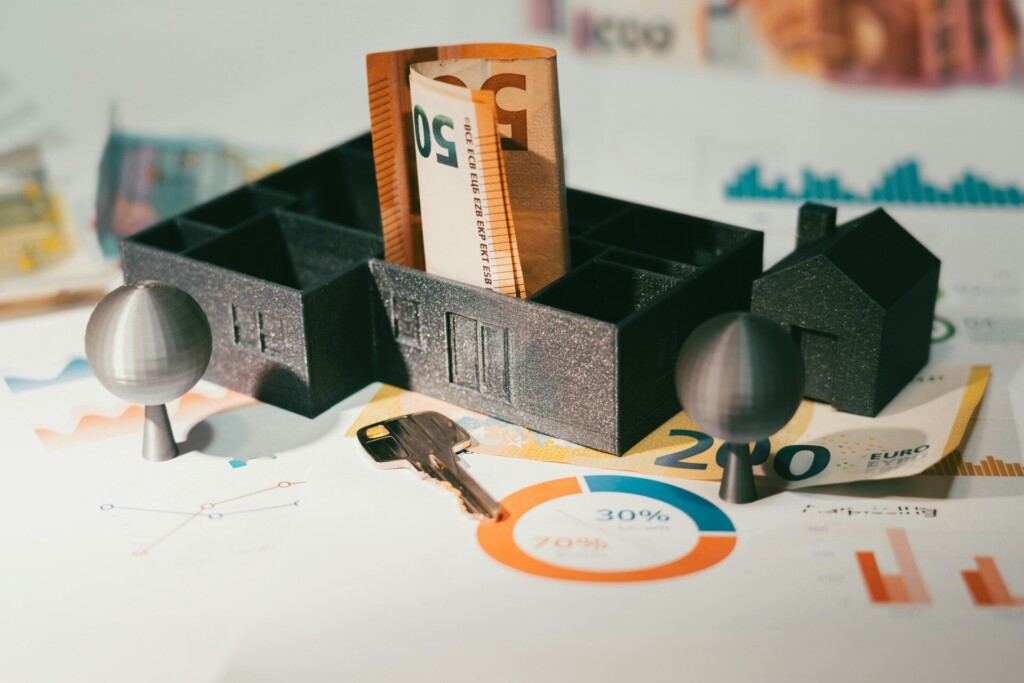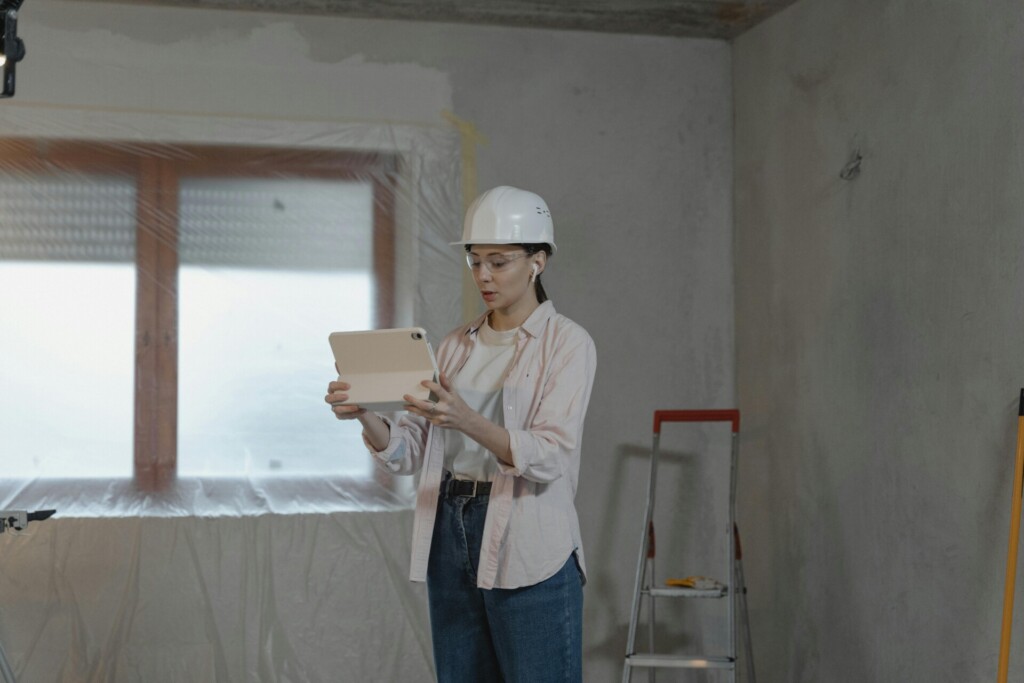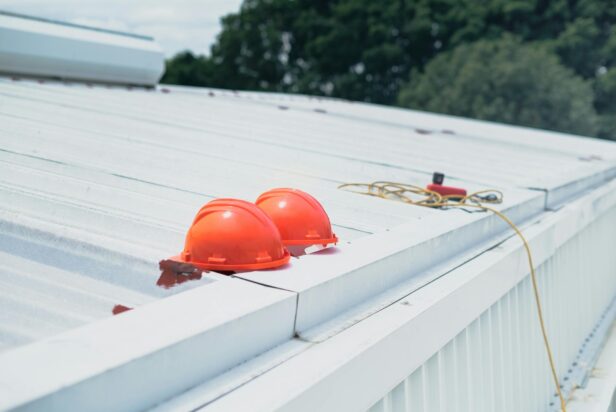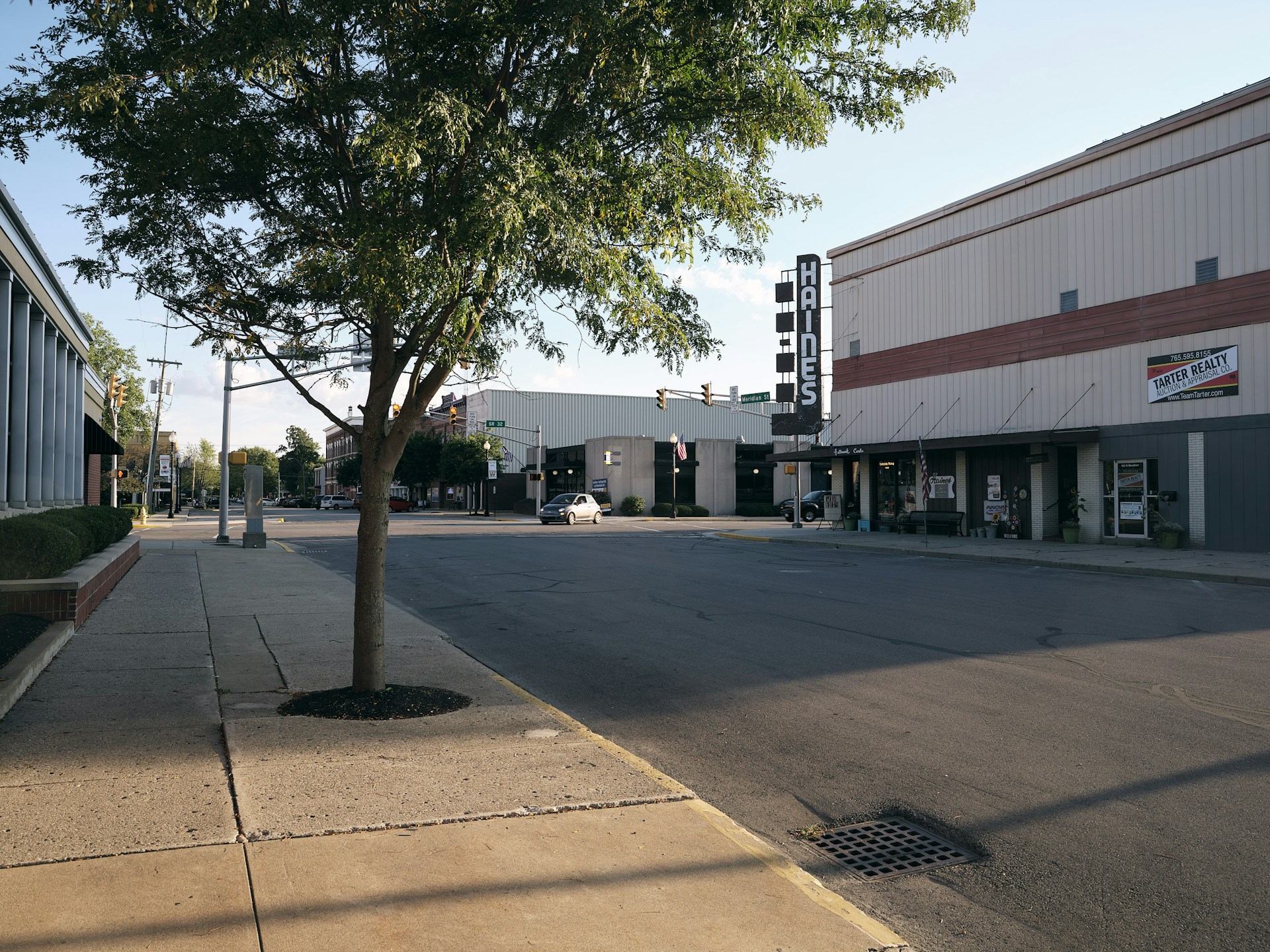Local retail contractors manage every aspect of commercial retail spaces from initial planning through final inspections. We coordinate design phases, secure all required permits, and handle specialized requirements like health department reviews for food service establishments.
These construction professionals execute comprehensive retail construction projects including build-outs, renovations, additions, and new construction while maintaining business operations. We use fast-track construction methods and block scheduling to minimize disruptions, often working during low-traffic hours to keep stores functional throughout the construction process.
Which Core Services Should You Expect From Local Retail Contractors?

Retail construction demands specialized expertise across multiple phases, from initial planning through project completion. We organize our services into distinct areas that address the unique requirements of retail environments and the tight timelines that define successful store openings.
Pre-Construction Planning and Design Support
Pre-construction services form the foundation for successful retail projects. We provide computer-aided design (CAD) support that transforms conceptual layouts into detailed construction drawings. Our consulting services help property owners and developers navigate zoning requirements and building codes specific to retail operations.
Permit expediting accelerates the approval process by managing submissions and coordinating with local authorities. For food service establishments, we handle health department plan reviews that ensure compliance with sanitation and safety regulations before construction begins. Our engineered plans address structural requirements, load calculations, and system integration that retail spaces demand.
Value engineering reviews optimize material selections and construction methods without compromising quality or functionality. We analyze cost-saving opportunities during the design phase, when changes have minimal impact on schedules and budgets.
Construction and Installation Services
Construction services encompass the physical transformation of retail spaces. Interior demolition removes existing fixtures and finishes while preserving structural elements and building systems. Our framing and drywall installation creates the spatial divisions that define retail layouts and customer flow patterns.
Suspended ceiling systems integrate lighting, HVAC distribution, and fire suppression components while maintaining accessibility for future maintenance. Millwork and casework installation includes custom fixtures, display cases, and storage solutions tailored to specific retail operations. Equipment installation extends to restaurant equipment, point-of-sale systems, and specialized retail technology.
General Contracting and Project Coordination
General contracting services coordinate all construction trades and manage project execution from start to finish. We oversee structural modifications, electrical system upgrades, and mechanical installations that support retail operations. HVAC systems receive particular attention, as proper climate control directly impacts customer comfort and product preservation.
Plumbing installations address restroom facilities, food service requirements, and utility connections. Our project management approach uses Critical Path scheduling to sequence activities and minimize construction time. This methodology identifies critical dependencies and allows us to adjust schedules when delays occur without impacting overall completion dates.
Security and Specialized Services
Site security protects construction materials and ensures job site safety during retail build-outs. Mobile cameras and remote monitoring systems provide 24-hour surveillance, particularly important for projects in active shopping centers where foot traffic continues during construction.
We handle diverse project types including retail interiors, strip malls and plazas, medical and dental offices, commercial kitchens, and restaurants and bars. Each project type brings specific code requirements, equipment needs, and operational considerations that we address through specialized construction approaches.
How Do Local Retail Contractors Plan Budgets, Schedules, And Compliance?
Effective planning forms the backbone of successful retail construction projects. We begin each project with thorough groundwork that establishes realistic expectations and identifies potential challenges before they become costly delays.
Initial Site Assessment And Budgeting
We conduct comprehensive site assessments to evaluate existing conditions, infrastructure limitations, and spatial requirements. These evaluations confirm whether the location can accommodate the proposed retail concept within budget constraints. Site assessments reveal critical factors like structural capacity, utility availability, and accessibility compliance that directly impact project costs.
Initial budgeting combines site findings with project scope to establish baseline cost expectations. We analyze square footage requirements, finish specifications, and mechanical system needs to develop preliminary budget ranges. This early budgeting prevents scope creep and ensures project feasibility before significant resources are committed.
Pre-Construction Architectural Reviews
Architectural reviews align design intent with regulatory requirements from the project’s earliest stages. We coordinate with local building departments, fire marshals, and health departments to identify code compliance issues before construction begins. This proactive approach prevents costly redesigns and schedule delays during permit review.
For food service projects, we engage health departments early to review ventilation, plumbing, and equipment placement requirements. These reviews ensure kitchen layouts meet regulatory standards while optimizing operational flow for restaurant staff.
Conceptual Estimates And Value Engineering
Conceptual estimates provide early cost projections based on preliminary design documents and site conditions. We develop these estimates from floor plans, finish schedules, and equipment specifications to give stakeholders realistic budget expectations. According to industry best practices, conceptual estimates should be treated as iterative tools that evolve as design details are refined.
Value engineering reviews examine materials, systems, and construction methods to optimize project budgets without compromising quality. We evaluate alternative finishes, mechanical systems, and structural approaches to identify cost savings opportunities. This process often reveals more efficient solutions that reduce both initial construction costs and long-term operational expenses.
Block Schedule And Accelerated Schedule Options
Block scheduling organizes construction activities into discrete phases that minimize disruption to ongoing retail operations. We sequence work to concentrate noise-intensive activities during off-hours and complete customer-facing areas first. Block schedules allow stores to maintain partial operations while construction progresses in separate zones.
Accelerated schedules compress project timelines through strategic sequencing and extended work hours when necessary. We coordinate multiple trades to work simultaneously in different areas, reducing overall project duration. These schedules require careful logistics coordination but can significantly reduce revenue loss from prolonged closures.
Open-Store Operations And Safety Processes
We maintain operational retail spaces through careful work zone isolation and traffic flow management. Construction activities are scheduled during low-traffic hours to minimize customer disruption while ensuring adequate progress. Safety barriers, dust containment, and noise control measures protect customers and staff throughout construction.
Daily on-site supervision ensures safety protocols are followed and work quality meets specifications. Supervisors coordinate with store managers to adjust work schedules based on daily traffic patterns and special events. This collaboration maintains safe shopping environments while keeping construction on schedule.
Cloud-based project management systems provide real-time updates on construction progress, schedule changes, and budget status. Stakeholders receive automated notifications about milestone completions, potential delays, and budget variances. These systems enhance communication transparency and enable quick decision-making when issues arise.
What Types Of Retail Projects Show Typical Scopes And Constraints?

Retail construction projects vary dramatically in complexity and requirements, each bringing unique challenges that we navigate daily. Understanding these project types helps developers and property owners prepare for the specific demands their spaces will face.
Tenant Build-Outs And Space Expansions
Standard tenant build-outs typically involve opening walls between adjacent spaces to create larger footprints for growing businesses. We coordinate structural steel installation when load-bearing walls need modification, ensuring the space meets current building codes. These projects require new restroom facilities, updated sprinkler systems, and enhanced electrical capacity to support modern retail operations.
HVAC systems demand careful attention during expansions since existing ductwork rarely accommodates the enlarged space efficiently. We design mechanical systems that provide consistent climate control throughout the expanded area while maintaining energy efficiency standards that keep operating costs manageable.
Food Service And Restaurant Conversions
Converting standard retail space into food service establishments presents distinct construction challenges. Floor refinishing becomes critical as we install grease-resistant surfaces that meet health department requirements. Storage areas require specialized ventilation and temperature control to preserve food safety standards.
Foodservice equipment installation demands precise coordination between electrical, plumbing, and gas utilities. We integrate commercial-grade lighting systems that illuminate both customer dining areas and kitchen workspaces according to local regulations. These projects typically include specialized exhaust systems and fire suppression equipment that standard retail spaces lack.
Supermarket And Grocery Store Development
Large-scale supermarket conversions rank among our most complex retail projects. Full refrigeration systems require substantial electrical upgrades and specialized mechanical rooms to house compressor equipment. Kitchen installations for prepared food sections need commercial-grade utilities and compliance with stringent health department standards.
Custom sales shelving systems integrate with the building’s structural framework while accommodating heavy product loads. Basement offices provide administrative space without reducing valuable sales floor area. We construct structural steel canopies over loading docks and install glass storefronts with dedicated lighting that creates inviting customer entrances.
Telecom Retail Store Modifications
Telecom retail remodels typically span 1,800 square feet and focus on optimizing customer flow and product visibility. We reconfigure existing layouts to create dedicated zones for phone displays, accessory sales, and customer service interactions. These spaces require enhanced security systems and specialized electrical infrastructure for device charging stations.
User-friendly design elements include improved lighting for product demonstration areas and flexible display systems that accommodate rapidly changing technology offerings. We integrate cable management systems that keep the space organized while supporting multiple electronic devices and point-of-sale terminals.
Historic Retail Renovations
Historic retail renovations balance preservation requirements with modern functionality demands. We preserve original architectural elements like exposed brick walls, hardwood floors, and decorative millwork while integrating contemporary retail systems. These projects require specialized permits and coordination with historic preservation authorities.
Modern retail interiors within historic shells demand creative solutions for HVAC distribution, electrical systems, and accessibility compliance. We design discrete mechanical systems that maintain the building’s character while providing the climate control and lighting that contemporary retail operations require. Code compliance becomes particularly complex as we adapt century-old structures to meet current safety and accessibility standards.
How Can Construction Teams Vet And Select Local Retail Contractors?
The selection process requires evaluating multiple dimensions of contractor capability beyond basic licensing and insurance. Teams need to examine whether contractors understand retail operations, possess proven methodologies, and deliver results within the compressed timelines common to retail construction. This evaluation directly impacts project success and determines whether stores open on schedule with minimal operational disruption.
Portfolio Quality And Retail Category Experience
Evaluate portfolios for specific retail categories that align with project requirements. Contractors with clothing store experience understand fixture installations and visual merchandising requirements differently than those specializing in grocery or automotive projects. Shopping center experience demonstrates familiarity with coordinating multiple tenant improvements while maintaining center operations.
Request detailed project examples that show scope complexity, budget ranges, and completion timelines. Quality retail contractors demonstrate success in comparable retail spaces, providing photos and measurable results from similar builds. This documentation reveals their understanding of brand standards, customer flow patterns, and operational constraints specific to retail environments.
Open-Store Construction And Fast-Track Capabilities
Open-store construction requires specialized skills in maintaining operations while building or renovating. Contractors must demonstrate experience working around active foot traffic, managing noise levels during business hours, and coordinating deliveries through restricted access points. This capability proves essential for chain expansions and renovations where closing operations creates significant revenue loss.
Fast-track capability involves accelerated scheduling methods that compress typical construction timelines. Contractors should explain their approach to concurrent activities, such as running electrical work while completing framing, or installing fixtures during final finishing phases. Teams need evidence of successful fast-track projects, including how they managed resource allocation and maintained quality standards under compressed schedules.
Scheduling Methodology And Project Management
Critical Path scheduling demonstrates sophisticated project management capabilities essential for retail construction deadlines. Contractors using Critical Path methods identify task dependencies, resource bottlenecks, and potential delays before they impact opening dates. This methodology proves particularly valuable when coordinating multiple trades within tight retail spaces.
Block scheduling offers an alternative approach where construction activities occur in concentrated phases, minimizing disruption to adjacent businesses. Teams should verify contractors can explain their scheduling philosophy, provide sample schedules from comparable projects, and describe how they handle schedule adjustments when unforeseen issues arise. Clear milestone tracking and communication protocols prevent small delays from cascading into major setbacks.
Pre-Construction Support Services
Strong pre-construction support indicates thorough planning capabilities that prevent costly surprises during construction. Site assessments should demonstrate understanding of existing conditions, utility access, and potential structural constraints. Budgeting processes must account for retail-specific requirements like specialized lighting systems, HVAC configurations for customer comfort, and fixture installations.
Architectural reviews ensure design compliance with local codes while meeting brand standards and operational requirements. Contractors providing conceptual estimates early in the process show commitment to transparent pricing and realistic budget planning. Value engineering services help optimize material selections and construction methods without compromising design intent or long-term durability.
Technical Capabilities And Safety Protocols
HVAC and refrigeration system management proves critical for food service and grocery retail projects. Contractors must demonstrate experience with commercial refrigeration installations, proper ventilation for commercial kitchens, and climate control systems that maintain product quality and customer comfort. This expertise includes understanding energy efficiency requirements and ongoing maintenance considerations.
Health department experience becomes essential for any food service component, from full restaurants to simple coffee service areas. Contractors should provide examples of successful health department plan reviews, permit coordination, and final approvals. Safety processes must address both construction worker protection and customer safety in active retail environments, including proper barriers, signage, and emergency access maintenance.
Communication And Project Oversight
Daily supervision ensures consistent quality control and immediate issue resolution. Teams should verify contractors provide dedicated project managers who maintain regular site presence and direct communication with all trades. Cloud-based project updates allow stakeholders to track progress, review photos, and address concerns without scheduling separate meetings or site visits.
Clear communication plans establish expectations for reporting frequency, escalation procedures, and decision-making authority. Contractors should outline their approach to managing change orders, coordinating with property management, and maintaining relationships with local authorities throughout permit and inspection processes.
Conclusion And Next Steps

Local retail contractors support every phase from early planning and permits to fast-track build-outs and open-store work. We coordinate pre-construction planning, manage permit expediting, and deliver value engineering solutions that keep projects on schedule and within budget. Our experience with retail build-out processes enables us to handle everything from tenant improvements to complex supermarket conversions while maintaining operations.
Define your scope clearly, confirm pre-construction support capabilities, and verify experience with similar project types and constraints. Ask potential contractors for schedules that reduce downtime through block scheduling or accelerated timelines. Request detailed safety plans for open-store remodel scenarios and establish clear communication protocols with daily supervision and regular updates. These steps help construction teams deliver retail spaces that open on time and perform well for customers.
Contact EB3 Construction to discuss your retail construction project and explore how our expertise can streamline your next build-out.



